
SICSS Singapore 2025: A Week of Interdisciplinary Learning and Computational Discovery
From 7 to 14 July 2025, the National University of Singapore (NUS) hosted the Summer Institute in Computational Social Science (SICSS), a dynamic week-long programme that brought together early-career scholars and international experts working at the intersection of data science and the social sciences.
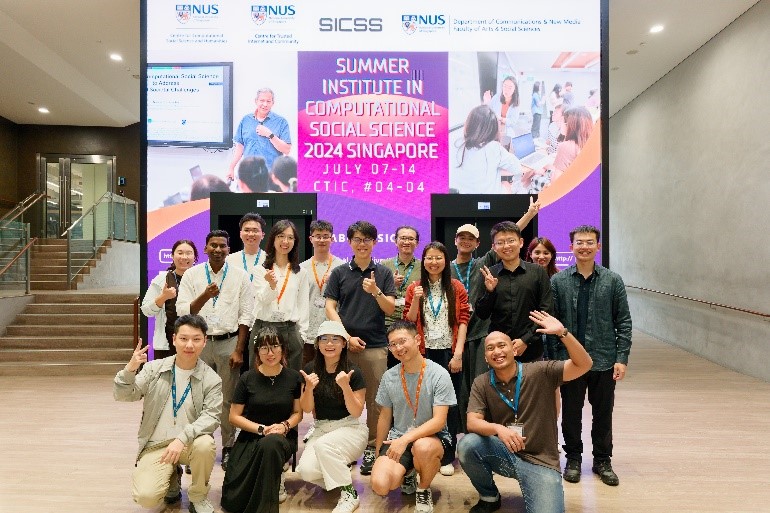
Group photo with speaker Asst. Prof. Yi-Chieh Lee (second row, third from left) at innovation 4.0
The workshop was co-organised by the NUS Department of Communications and New Media (CNM) and the Centre for Trusted Internet and Community (CTIC), and sponsored by the Centre for Computational Social Science and Humanities (CSSH) along with the global SICSS. It convened 16 participants, including PhD students, research fellows, and untenured faculty, from Singapore, China, the Philippines, India, Indonesia, and the United States.

Overseas speakers (left) Prof. Jonathan Zhu, (middle) Prof. Celine Yun, and (right) Asst. Prof. Joshua Uyheng
Participants had the opportunity to engage with 13 invited speakers, including international experts Prof. Jonathan Zhu (City University of Hong Kong), Prof. Celine Yun Ya Song (Hong Kong University of Science and Technology), and Asst. Prof. Joshua Uyheng (Ateneo de Manila University), who flew in to Singapore to deliver their lectures in person. Other speakers included Asst. Prof. Renwen Zhang (NUS), Asst. Prof. Yi-Chieh Lee (NUS), Asst. Prof. Prateek Bansal (NUS), Asst. Prof. Kokil Jaidka (NUS), Asst. Prof. Hannah Clapham (NUS), Asst. Prof. Swapnil Mishra (NUS), Dr. Joe Simons (IHPC), Mr. Siyuan Brandon Loh (IHPC), Dr. Prasanta Bhattacharya (IHPC), and Dr. Douglas Guilbeault (Stanford Graduate School of Business), representing a wide range of disciplines from communication and psychology to public health, computer science, and behavioural science.
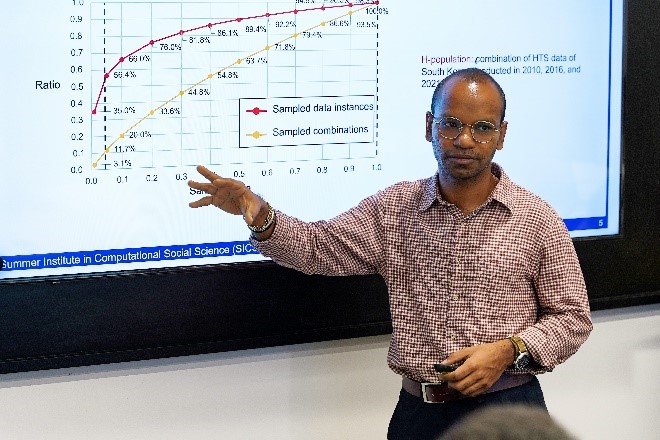
Asst. Prof. Prateek Bansal lecturing on analytical data fusion approaches to update mobility patterns in real-time
The instructional programme combined lectures, practical workshops, and group discussions, covering a wide array of topics at the frontier of computational social science. Speakers explored the use of large language models for qualitative data analysis, including applications in mental health, AI-assisted coding, and text summarisation. The ethical implications of human-AI interaction, particularly in contexts like AI companionship and digital wellbeing, were critically discussed, alongside the growing need for transparency and reproducibility in AI-driven research.
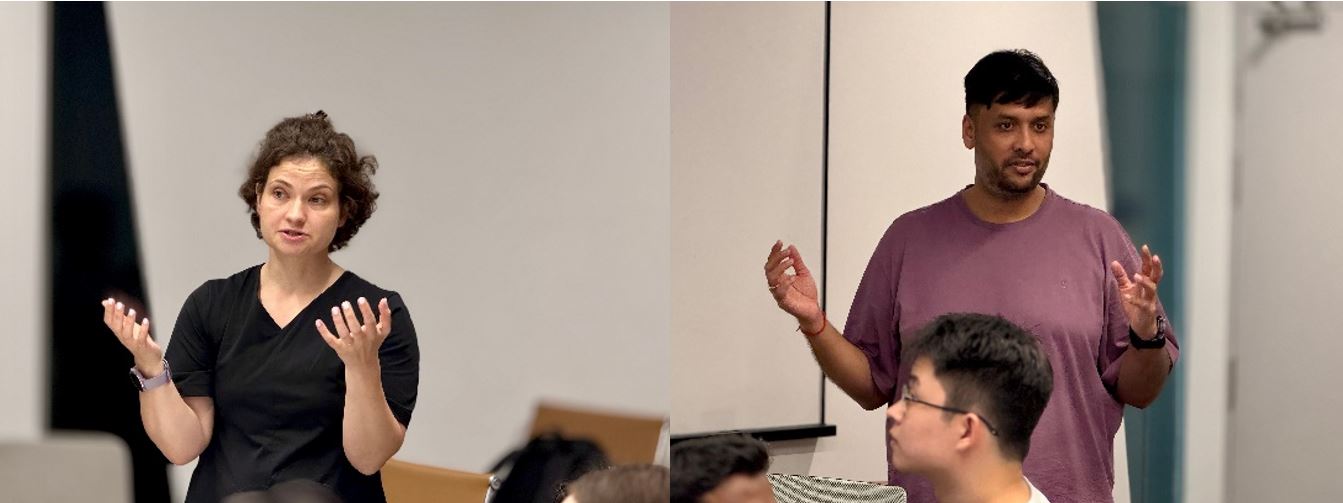
(Left) Asst. Prof. Hannah Clapham, and (right) Asst. Prof. Swapnil Mishra lecturing on population linking models for infectious disease transmission and social media content spread
Sessions also delved into the construction of synthetic populations and activity schedules for mobility studies, introducing participants to data fusion methods that blend traditional surveys with smart card and sensor data. In public health, participants explored epidemic modeling frameworks and discussed parallels with content virality in social media, drawing connections between disease transmission and the spread of online information.

(Left) Dr. Prasanta Bhattacharya, (middle) Mr. Siyuan Brandon Loh, and (right) Dr. Joe Simons conducting a workshop on LLMs for topic modelling and social science
Several talks underscored the role of field experiments and survey platforms in digital communication research, as well as the use of LLMs in topic modeling and prompt engineering for behavioural studies. Through case studies, participants also examined online harms, hate speech, and social cyber threats, engaging with network-based analyses of political discourse and platform manipulation. Throughout, speakers encouraged participants to reflect on the interdisciplinary tensions and synergies between social science frameworks and computational practice.
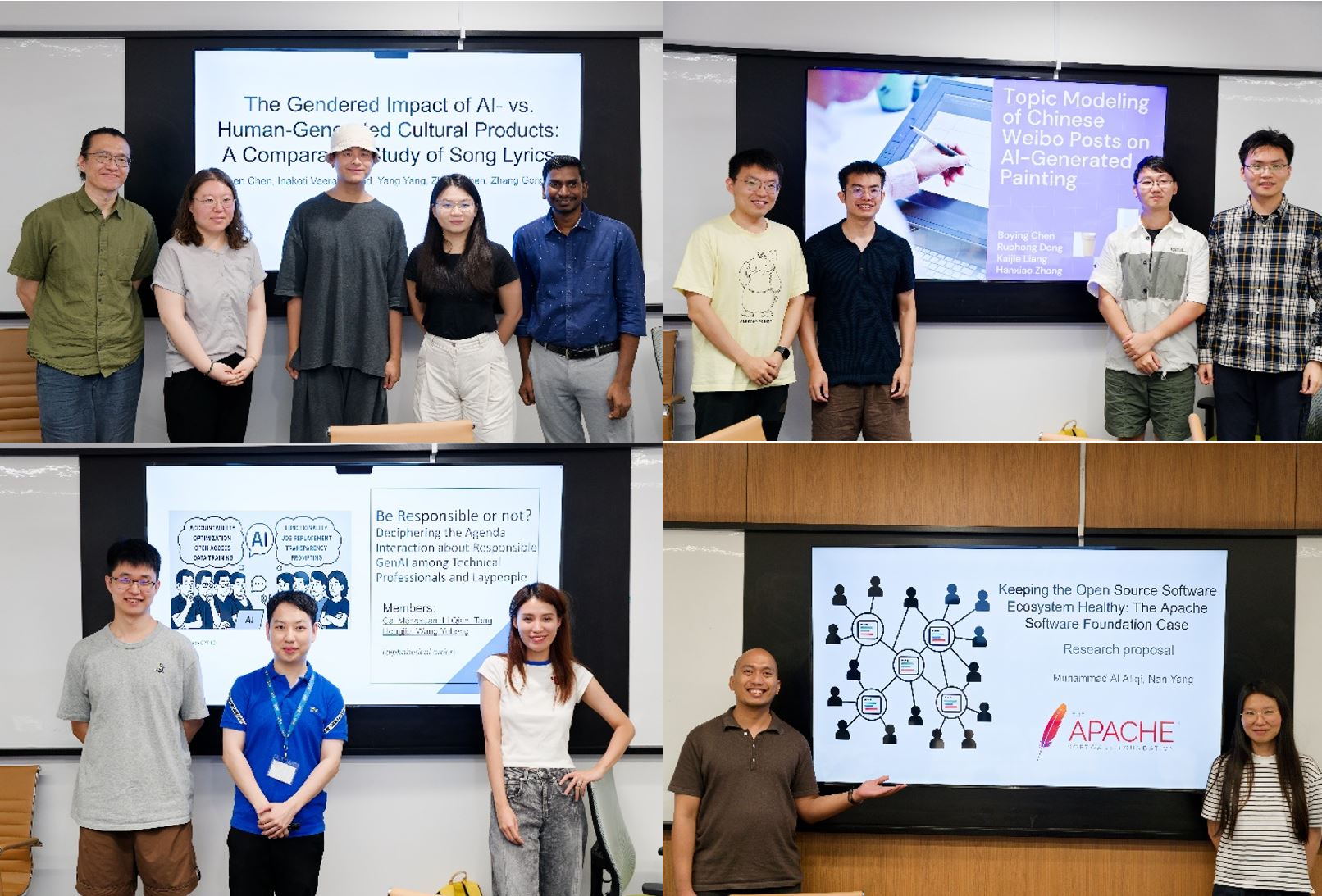
Participants-led projects and presentation
In the latter half of the week, participants formed small teams to design and present original research projects, including:
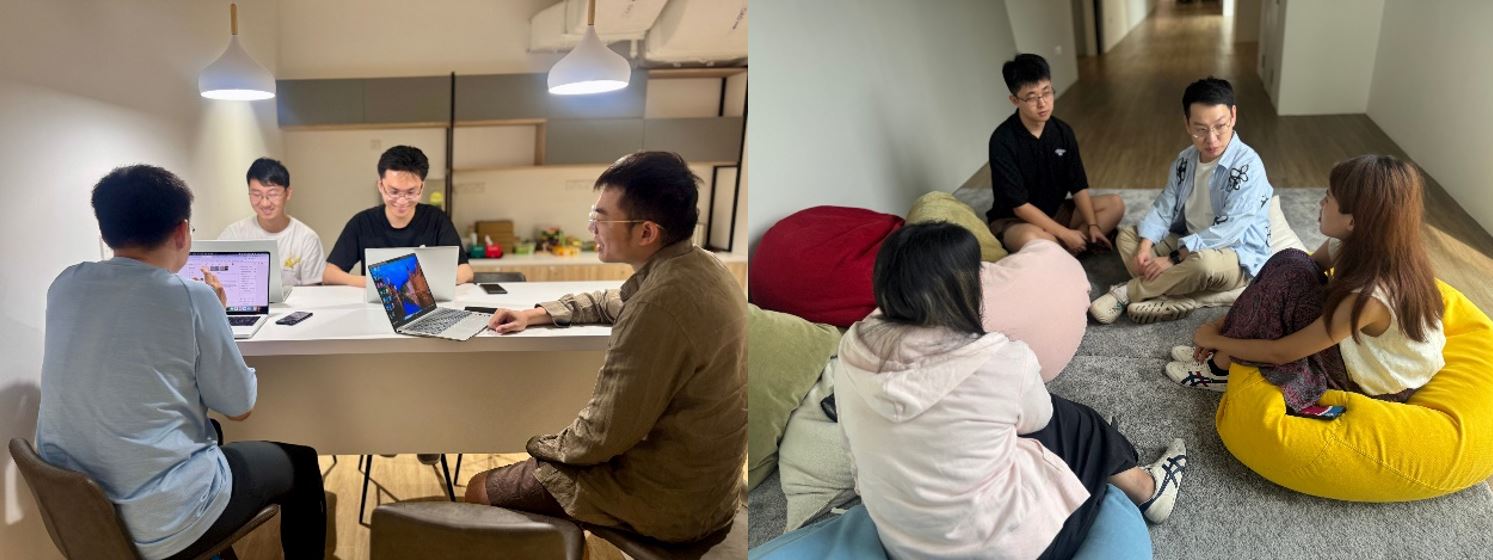
Participants group discussions
These projects demonstrated the creative integration of social insight with computational methods, and were met with enthusiastic feedback during the final presentations.
We extend our deepest appreciation to Asst. Prof. Renwen Zhang, Asst. Prof. Subhayan Mukerjee, Ouyang Rongxin, and their team from NUS CNM, whose dedication and meticulous planning made the event a success.
Finally, thank you to all our speakers and participants for contributing to a week of rigorous inquiry, open collaboration, and global community-building.
Stay tuned for the lecture recordings and future opportunities with SICSS Singapore!